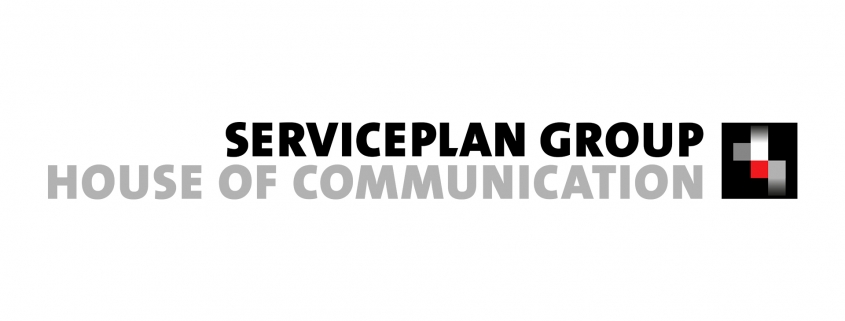- My Profession: Event Producer - 8. September 2015
These days, few of us regard the profession of event management as an unusual one. Typically, the profession is thought to be limited to rather a narrow range of tasks related to developing and carrying out festivals for companies and individuals. However, my over 10 years of industry experience suggest that the profession itself is largely underestimated in Russia.
This underestimation is a result of a massive tangle of notions that has formed in the course of the extensive changes in the country’s economy. I am going to try to unravel this tangle to reveal the potential of the events industry and the profession.
Event producer vs. event manager
Some may think that there is hardly any difference between the two professions. Many would say, no matter what you call it – it will still mean the same. Yet consider this: the name of a profession makes all the difference. Firstly, it is important in terms of the identity of the professional, and, secondly, in terms of forming a clear and thorough understanding of the tasks assigned to the said professional.
This is why I suggest we look into the essence of the words ‘producer’ and ‘manager’ to define the main differences. According to the Russian Wikipedia, a producer is a professional directly involved in the production of a project, overseeing the financial, administrative, technical, creative and legal aspects of the activity and regulating the policy in the course of a project. According to the same source, a manager is a director, executive, or a specialist in administration. A manager is a business official who is part of the company’s middle or senior executive staff. The determinant attribute of a manager is that he or she has subordinates.
This actually means that the word ‘producer’ is used to describe wider areas of activity (a film producer, a music producer, an event producer), unlike the word ‘manager’ which suggests being in control of, organizing and regulating business processes and a company’s operations. To sum it up, a producer has a scope of tasks that is rather different from that of a manager, despite the fact that by default they are both efficiency-oriented.
The global market practice clearly demonstrates that the event manager is often excluded from the executive personnel and does not always have subordinates, though a manager, no doubt, takes over some of the project leader’s functions in the course of the project and controls processes and people.
“During my many years in the agency business I’ve realized that what I’ve been doing is not project management, it is project production. My task is not just to create and organize a project, it is rather to properly present it to the target audience, to build effective communication, to come up with a marketing project that will be interesting and relevant for the end user,” says Viktoria Shakhova, Louder’s leading event producer.
This is why Louder believes it is both clearer and more correct to refer to the profession as ‘event producer’. Incidentally, this is exactly what it is called in Europe.
How to become an event producer?
This is the question of the day in the industry. The thing is, there is no place in Russia where you can get an official degree in event production. There are related areas, such as brand management, management in show business, public events management, PR, marketing, etc. However, none of these areas reflects the entire essence and potential of the events market development.
Meanwhile, the viability of an industry is supported through specialized education. By the way, the absence of such education creates considerable staffing problems in the Russian market. Say, if we take Europe, the average age of an event producer will be around 35, compared to 25 in Russia. A Russian event manager is in fact a self-taught person: we all learn the trade mainly through trial and error, using as much knowledge as we have managed to accumulate working on our previous projects.
Another problem is lack of understanding of the profession’s potential. Many people are unaware that ‘producer’ spells unlimited opportunities for professional growth, a variety of related areas of expertise that always require gaining further knowledge, a vivid life full of extensive social networking and meeting interesting people, as well as an unlimited potential for financial accomplishment. Typically, the people employed in this area in Russia are likely to burn out before they turn 30.
Few people understand that today’s events industry includes not only public events (such as private events, city events, charity projects), but also event marketing (by which we mean brand-oriented events: HR events, MICE, B2B and B2C events). Meanwhile, to organize such an event you need to have all kinds of knowledge. The first block of events requires knowledge of basic processes related to the management of celebratory events, knowledge of psychology and people’s taste preferences, while the second block requires knowledge in marketing communications, brand management, PR and other areas of marketing.
It would be nice if a leading Russian university established an education programme so you can get a degree as an event producer. It would contribute to the formation of the fundamental market principles and promote the civilized development of the events industry. However, at this point you can learn the basics of trade only by getting a job at a major agency. And move up through the ranks to become a successful producer, gaining experience from senior producers, creatives and strategists.
It’s never too late to become an event producer. I believe, the profession comes easier to females who have a degree in law or economics, and to males who have a military or engineering education. These kinds of education encourage systems thinking, which is also quite an asset for a producer.
The future of event production
Today, an event producer or an event manager is rather a trouble shooter, a gofer of sorts, who uses the web to find whatever is required. I mean, this is the superficial judgement prevailing on the market at large. In reality, a professional event producer does much more than he or she seems to be doing. This person is always prepared to account for the project deliverables both to the client and to himself or herself. This person can select adequate subcontractors, develop a strategy using integrated approach, implement a project, and identify the KPIs and so on.
For an event producer, an event is the main effective instrument that he or she uses to inspire people, involve them in the process, offer them an opportunity to use their potential, educate, entertain, and get across the values of a brand, a person or even a whole city. The entire history demonstrates that events have been the main means of communication between people uniting them in the name of a certain cause or idea. This is why you can no longer underestimate the events industry potential.
You have to start with yourself. Which is exactly what I did. I regard my profession as significant and important. It not only creates value in terms of the brand’s commercial objectives, it also contributes to self-realization of individuals, helps discover new names and makes way for talent. Encourage personal development, find your identity, and love what you do. An event producer is a great profession and a state of mind. Let the sky be your limit, and together we’ll surely make a difference in the industry!





